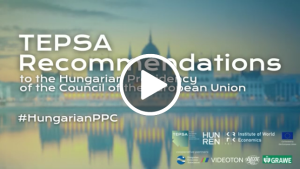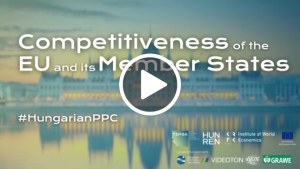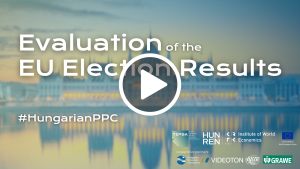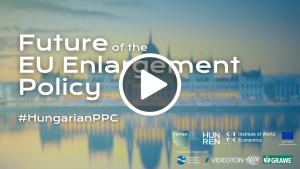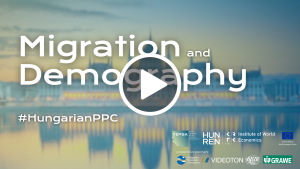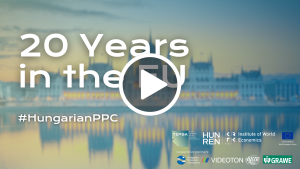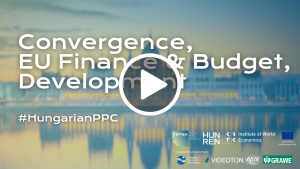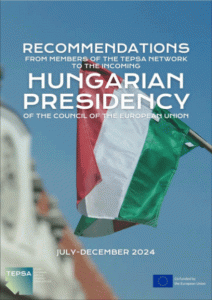
Date: Thursday 13 and Friday 14 June 2024.
Venue: HUN-REN Centre for Economics and Regional Studies – Institute of World Economics
4. Tóth Kálmán Street, Budapest, H-1097, Hungary
CLICK HERE FOR THE CONFERENCE AGENDA
On 1 July 2024, Hungary took over the reins of the Council of the European Union, holding the Rotating Presidency for the second time since its accession to the European Union twenty years ago, in May 2004.
In 2024, the year of European elections, a new Strategic Agenda, a new Commission mandate, as well as new and continuing challenges facing the European project, bridging the gap between policy-makers, academics, and citizens has never been more important.
To discuss the aims and priorities of the incoming Hungarian Presidency, as well as the crucial files needing attention in the EU, the HUN-REN Centre for Economics and Regional Studies – Institute of World Economics and the Trans European Policy Studies Association (TEPSA) jointly co-organised the Hungarian Pre-Presidency Conference (PPC): “Changes and Challenges in the European Union”.
The Hungarian PPC took place on 13-14 June 2024 in Budapest and will host policymakers to meet with key stakeholders and the wider public. The conference featured high level discussions between researchers from the TEPSA Network, members of the public including students and civil society representatives, and key policymakers from the Hungarian government.
The second semester of 2024 is a crucial moment for reflection on the past achievements, present challenges, and future prospects for the European project. This is why our conference focused on a number of key thematic areas. In the first plenary session, the Recommendations from members of the TEPSA network were presented and discussed. Meanwhile, our parallel sessions covered such themes as competitiveness, EU financing, enlargement, and migration, in addition to one session evaluated the results of the European elections, held on June 6-9, and another reflected on the twentieth anniversary of the 2004 enlargement round. Finally, the last plenary session took stock of the EU’s geopolitical challenges and consider the future of security and defense in Europe.
On the occasion of the Hungarian Pre-Presidency Conference, TEPSA also presented recommendations to the incoming Hungarian Presidency. These recommendations for part of a long history of interaction between TEPSA and the Council Presidencies, starting with the first Pre-Presidency Conference. They were circulated to key policy-makers in the Hungarian Ministries, and discussed in depth at the PPC.
This Pre-Presidency Conference was organised by the Trans European Policy Studies Association (TEPSA) and the HUN-REN Centre for Economics and Regional Studies – Institute of World Economics. The event was co-funded by the European Union in the framework of the Citizens, Equality, Rights and Values programme. The event was in cooperation with the Hungarian Economic Association, Videoton Holding, Budapest Chamber of Commerce and Industry and Grawe Insurance.
Hashtag: #HungarianPPC
Videos of the plenary sessions
In the panel “TEPSA Recommendations”, TEPSA Executive Director Mariam Khotenashvili moderated a debate between Balázs Molnár, Hungary’s State Secretary Responsible for the Presidency, Nicoletta Pirozzi (Istituto Affari Internazionali & TEPSA Board Member), and Richard Youngs (Carnegie Europe & TEPSA Board Member).
In the panel “Competitiveness of the EU and its Member States”, Anita Pelle from Szeged University moderated a discussion between Gergely Baksay (Hungarian National Bank & Hungarian Economic Association), Michele Chang (College of Europe), and Cordelia Buchanan Ponczek (Finnish Institute of International Affairs).
In the panel “Results of the EP elections, evaluation”, Michael Kaeding (TEPSA Honorary Board Member; College of Europe & University of Duisburg-Essen) moderated a discussion between András Bíró-Nagy (HUN-REN CSS Institute for Political Science), Ilke Toygür (IE University Global Policy Center), Erik Jones (European University Institute, Robert Schuman Centre), and Enikő Győri (Member of the European Parliament).
In the panel “The Future of the EU’s Enlargement Policy”, Funda Tekin (Institut für Europäische Politik & TEPSA Board Member) moderated a discussion between Anna Orosz (Hungarian Institute for International Affairs), Danijela Jacimovic (University of Montenegro), Karlis Bukovskis (Latvian Institute of International Affairs), and Yuriy Yakymenko (Razumkov Centre).
In the panel “Migration, demography”, Jaap de Zwaan (TEPSA Honorary Board Member; Erasmus University Rotterdam) moderated a discussion between Vera Messing (Centre for Social Sciences, Sociology Institute), Jean-Louis de Brouwer (Egmont Institute), Eugenia Kopsidi (European Law & Governance School), and Giorgi Khishtovani (PMC Research Center).
In the panel “20 Years in the EU”, Boglárka Koller (Ludovika University of Public Service) moderated a reflection on the 2004 enlargement between Merili Arjakas (International Centre for Defence and Security), Boštjan Udovič (Centre of International Relations, University of Ljubljana), Lucia Mokrá (Chairperson of the TEPSA Board; Comenius University in Bratislava), and Éva Palócz (Kopint Tárki Institute; Hungarian Economic Association).
In the panel “Convergence, EU Finance & Budget, Development”, Zsolt Becsey (fmr. Member of the European Parliament; Hungarian State Secretary in the Ministry for National Economy) moderated the discussion between István Benczes (Institute for World Economics HUN-REN CERS & Corvinus University), Louise van Schaik (Clingendael Institute), Ákos Kengyel (Corvinus University), and Miklós Losoncz (Budapest Business University).
In the panel “Geopolitical challenges, security of the EU”, Pernille Rieker (Norwegian Institute of International Affairs) moderated a discussion between Anna Molnár (Ludovika University of Public Service), Magdalena Góra (Institute of European Studies, Jagiellonian University), Luigi Scazzieri (Centre for European Reform), and Gunilla Herolf (Swedish Institute of International Affairs).
Recommendations from members of the TEPSA network to the Hungarian Presidency
Photo gallery

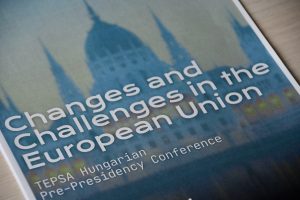
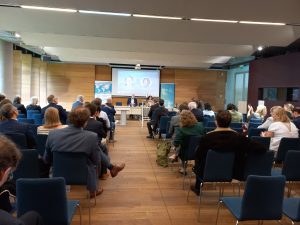
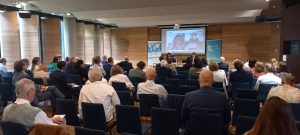
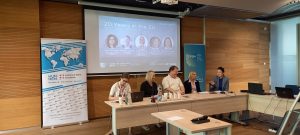
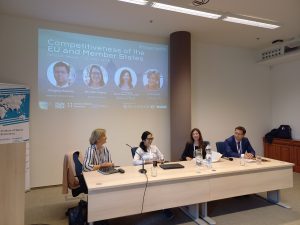
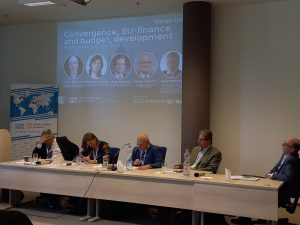
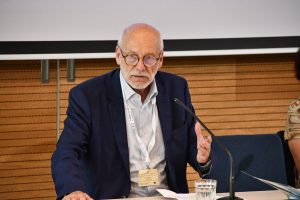
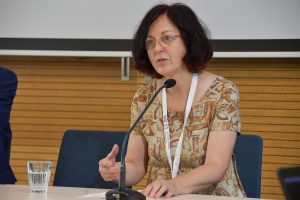
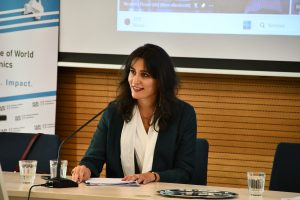
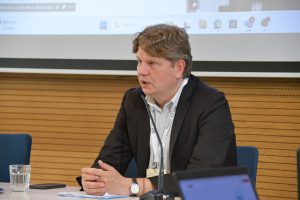
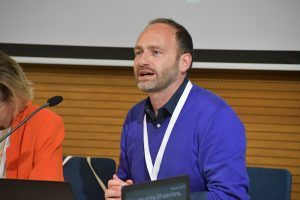
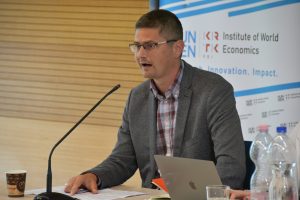
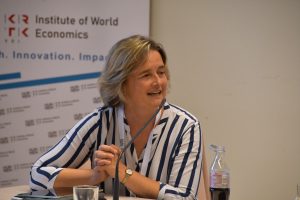
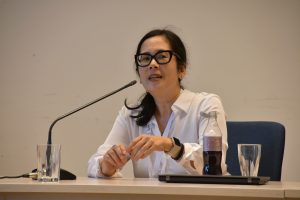
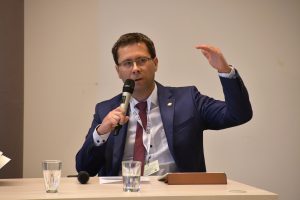
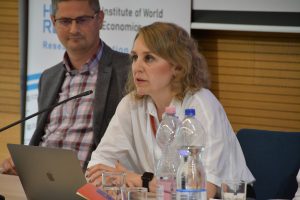
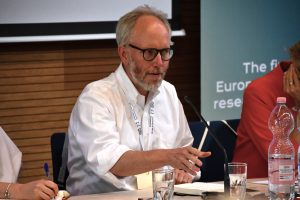
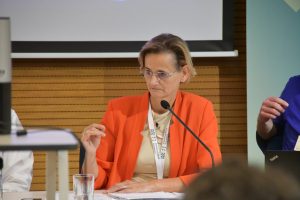
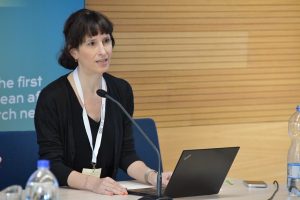
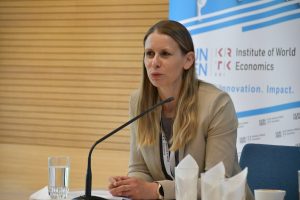
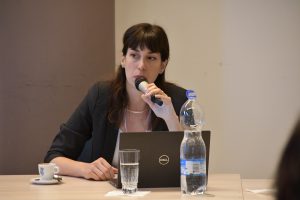
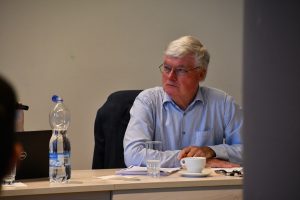
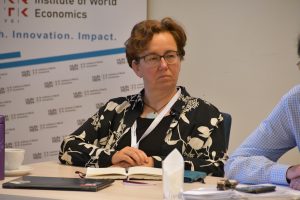
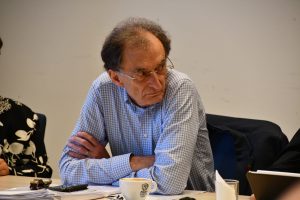
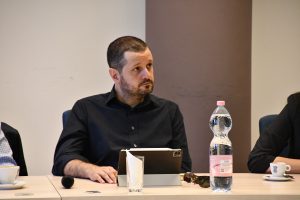
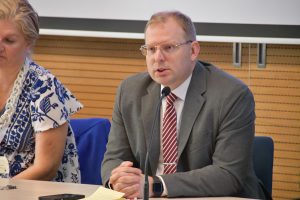
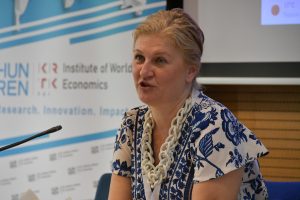
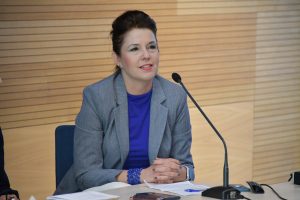
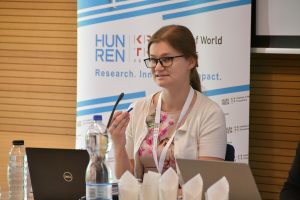
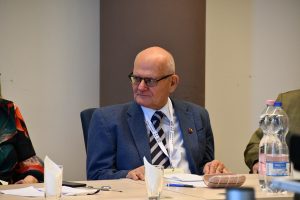

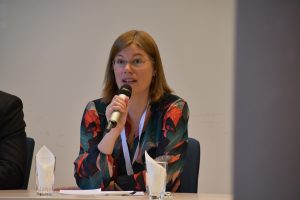
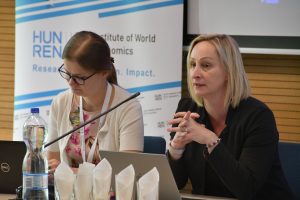
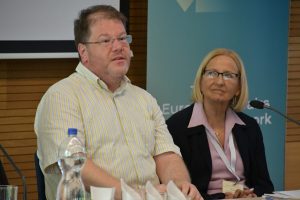
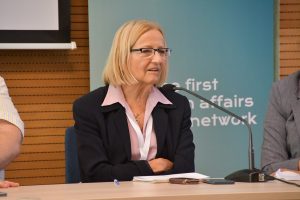
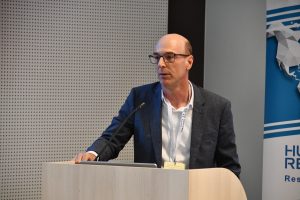
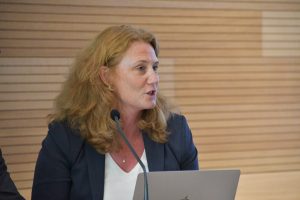
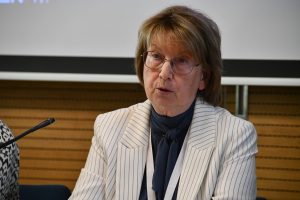
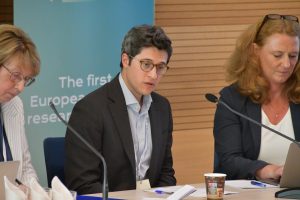

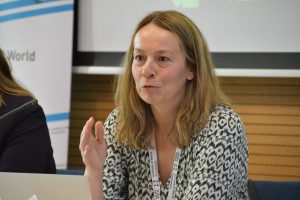
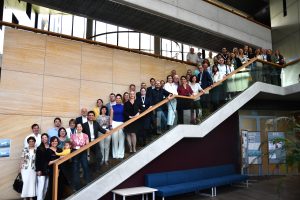
Agenda
DAY 1 (13 June, Thursday)
| 13.30 – 15.00: | Plenary Session I. (Venue: Conference Hall) |
|
| Opening remarks: Jim Cloos (TEPSA, Secretary-General)
Magdolna Sass (IWE HUN-REN CERS, Director) |
||
| Panel Discussion: TEPSA Recommendations
Balázs Molnár (State Secretary, Responsible for the Presidency) Nicoletta Pirozzi (Istituto Affari Internazionali, Head of Programme on European Union and Institutional Relations Manager) – online Richard Youngs (Carnegie Europe, Senior Fellow) – online Moderator: Mariam Khotenashvili (TEPSA, Executive Director) |
||
| 15.00 – 15.30: | Coffee Break (Venue: Gallery) |
|
| 15.30 – 17.00: | Parallel Sessions: | |
| Session 1: Competitiveness of the EU and Member States (Venue: K 0.11-12)
Gergely Baksay (Hungarian National Bank, Executive Director, Hungarian Economic Association) Michele Chang (College of Europe, Director of the Transatlantic Affairs Programme) Cordelia Buchanan-Ponczek (Finnish Institute of International Affairs, Leading Researcher) Moderator: Anita Pelle (Szeged University, Head of Institute of International Economics, Jean Monnet Chair) |
||
| Session 2: Results of the EP elections, evaluation (Venue: Conference Hall)
András Bíró-Nagy (HUN-REN CSS Institute for Political Science, Senior Research Fellow) Ilke Toygur (IE Global Policy Center, Director) Erik Jones (European University Institute, Robert Schuman Centre, Director) Enikő Győri (Member of the European Parliament) Moderator: Michael Kaeding (University of Duisburg-Essen, Professor) |
||
DAY 2 (14 June, Friday)
| 9.00-10.30 | Parallel Sessions | |
| Session 3: The Future of the EU’s Enlargement Policy (Venue: Conference Hall)
Anna Orosz (Hungarian Institute for International Affairs, Research Fellow) Danijela Jacimovic (University of Montenegro, Professor) Karlis Bukovskis (Latvian Institute of International Affairs, Director) Yuriy Yakymenko (Razumkov Centre, President) – online Moderator: Funda Tekin (Institut für Europäische Politik, Director) |
||
| Session 4: Migration, demography (Venue: K 0.11-12)
Vera Messing (Centre for Social Sciences, Sociology Institute, Director) Jean-Louis de Brouwer (Egmont Institute, Director) Eugenia Kopsidi (European Law & Governance School, Resident Lecturer) Giorgi Khishtovani (Research Director at PMC Research Center) Moderator: Jaap de Zwaan (TEPSA, Honorary Board Member, Erasmus University Rotterdam) |
||
| 10.30 – 10.45: | Coffee Break (Venue: Gallery) |
|
| 10.45 – 12.15: | Parallel Sessions: | |
| Session 5: 20 Years in the EU (Venue: Conference Hall)
Merili Arjakas (International Centre for Defence and Security, Junior Research Fellow) Boštjan Udovič (Centre of International Relations, University of Ljubljana, Deputy Head) Lucia Mokra (TEPSA, Chairperson of the Board; Comenius University in Bratislava, Dean) Éva Palócz (Kopint Tárki Institute, General Director; Hungarian Economic Association, Vice-President) Moderator: Boglárka Koller (Ludovika University of Public Service, Jean Monnet Chair, Head of Dept for European Studies) |
||
| Session 6: Convergence, EU-finance and budget, development (Venue: K 0.11-12)
István Benczes (Institute for World Economics HUN-REN CERS, Corvinus University, Professor) Louise van Schaik (Clingendael Institute, Head of Unit EU & Glopbal Affairs) Ákos Kengyel (Corvinus University, Jean Monnet Chair, Professor) Miklós Losoncz (Budapest Business University, Professor) Moderator: Zsolt Becsey (former Member of the European Parliament; Ministry for National Economy State Secretary, Hungarian Economic Association) |
||
| 12.15 – 12.30: | Coffee break (Venue: Gallery) |
|
| 12.30 – 13.45: | Plenary Session II: Geopolitical challenges, security of the EU (Venue: Conference Hall) |
|
| Anna Molnár (Ludovika University of Public Service, Head of Department International Security Studies)
Magdalena Góra (Institute of European Studies, Jagiellonian University, Associate Professor) Luigi Scazzieri (Centre for European Reform, Senior Research Fellow) Gunilla Herolf (Swedish Institute of International Affairs, Senior Associate Research Fellow) Moderator: Pernille Rieker (Norwegian Institute of International Affairs, Research Professor) |
||
| 13.45 – 14.00: | Concluding remarks: Lucia Mokra, TEPSA, Chairperson of the Board | |
| 14.00: | Sandwich Lunch (Venue: Gallery) |
_________________________________________________________________________________
This Pre-Presidency Conference was organised by the Trans European Policy Studies Association (TEPSA) and the HUN-REN Centre for Economics and Regional Studies – Institute of World Economics. The event was co-funded by the European Union in the framework of the Citizens, Equality, Rights and Values programme. The event was in cooperation with the Hungarian Economic Association, Videoton Holding, Budapest Chamber of Commerce and Industry and Grawe Insurance.



